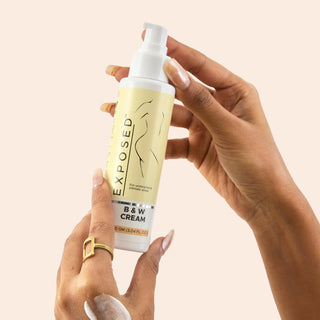When it comes to achieving an even skin tone and addressing dark spots, selecting the right whitening cream for dark spots can make all the difference. With so many products available in the market, understanding the key ingredients becomes essential. In this guide, we’ll explore the must-have components in a whitening cream for dark spots and how they can benefit your skin.
What Makes a Whitening Cream Effective?
A whitening cream works by targeting uneven pigmentation, hydrating the skin, and promoting overall clarity. The effectiveness of such a cream often depends on its ingredients. Here's a detailed look at what to look for:
1. Cucumber: Nature’s Skin Brightener
Cucumber is known for its cooling and soothing properties. But did you know it can also lighten skin tone? Cucumber extract helps reduce the appearance of dark spots and gives your skin a refreshing glow.
-
Why is cucumber essential?
It hydrates and gently brightens the skin, making it a perfect choice for people with sensitive skin looking to address dark patches.
2. Aloe Vera: The Soothing Hydrator
Aloe vera is a household favorite for its ability to heal and moisturize. In a whitening cream, aloe vera works by improving the skin’s texture while promoting a brighter complexion.
-
How does aloe vera help with dark spots?
Its natural enzymes work to repair skin and reduce pigmentation, ensuring a smoother and more even skin tone.
3. Tulsi: The Antioxidant Powerhouse
Tulsi, or Holy Basil, is rich in antioxidants that protect your skin from environmental damage. It promotes clearer and radiant skin by reducing free radicals that can cause dark spots.
-
Why choose a cream with tulsi?
It not only brightens but also prevents further pigmentation, keeping your skin healthy and youthful.
4. Citrus Wonders: Lemon and Orange
Both lemon and orange are packed with vitamin C, a key ingredient in brightening and exfoliating skin. Lemon helps to remove dead skin cells, while orange reduces blemishes and improves overall clarity.
-
What makes vitamin C effective in whitening creams?
Vitamin C’s natural brightening properties help reduce dark spots and promote a radiant glow.
5. Natural Astringents: Svariiksara and Tea Tree Oil
Svariiksara acts as a natural astringent, tightening pores and improving skin’s texture. Tea tree oil, on the other hand, is excellent for clarifying skin and reducing blemishes caused by acne or pigmentation.
-
Are these ingredients suitable for all skin types?
Yes, they are gentle yet effective in reducing uneven tone and improving skin’s appearance.
6. Hydrating Oils: Coconut, Sunflower, and Olive Oil
Hydration is key to achieving an even complexion. Coconut oil improves skin tone by moisturizing deeply, while sunflower and olive oils provide protection and nourishment.
-
How do oils benefit a whitening cream?
They prevent dryness, maintain elasticity, and ensure that the skin’s barrier remains intact.
7. Rose Water: Balancing and Soothing
Rose water is an age-old remedy for reducing redness and balancing the skin’s pH levels. In a whitening cream, it enhances clarity and provides a calming effect.
-
What does rose water do for dark spots?
It soothes irritation and evens out skin tone over time.
Key Takeaways When Choosing a Whitening Cream
When looking for a whitening cream for dark spots, focus on products that contain natural brighteners, antioxidants, and hydrating agents. Avoid harsh chemicals and prioritize creams with ingredients like cucumber, aloe vera, and vitamin C for safe and effective results.
For an effective solution, check out this whitening cream for dark spots. It’s enriched with natural ingredients like cucumber and aloe vera, making it an excellent choice for brightening and nourishing your skin.
Conclusion
Selecting the right whitening cream is all about understanding what goes into the product. Look for ingredients that brighten, hydrate, and protect your skin. Choosing organic cream for pigmentation with ingredients like cucumber, aloe vera, and citrus extracts not only reduce dark spots but also enhance your overall skin health. Remember, consistency and care are key to achieving a radiant and even complexion.
FAQs
Q: Can I use a whitening cream for sensitive skin?
Yes, but ensure it contains soothing ingredients like aloe vera and rose water.
Q: Are natural ingredients more effective?
Natural ingredients are gentler and safer for long-term use, reducing the risk of irritation.
Q: Can whitening creams replace sunscreen?
No, always use sunscreen during the day to protect your skin from harmful UV rays.


